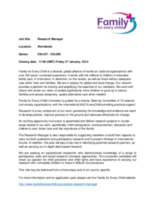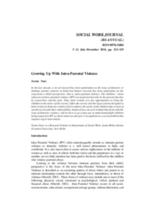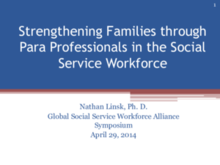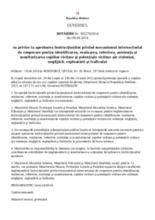Demographic Data
|
Sources: World Bank, UNDP, UNAIDS, DHS 2013 |
Displaying 12281 - 12290 of 14391
Family for Every Child has commissioned a research study to identify gaps in knowledge and understanding around foster care and is seeking literature, both published and unpublished ‘grey’ literature, covering the research questions and foster care in general.
This article highlights the efforts of a lobby group in New Zealand, CCS Disability Action, which is demanding an amendment as part of sweeping child protection reforms, arguing that children with high needs are being abandoned and denied their right to a family life.
The Department of Social Welfare and Development (DSWD) in the Philippines has appealed to families and individuals taking care of children orphaned due to Typhoon Yolanda to register under the Rapid Family Tracing and Reunification (RFTR) Program.
A Strategic Response Plan developed and designed to support the Government of the Philippines’ response to the immediate humanitarian needs of the people affected by Typhoon Haiyan (Yolanda), and to complement the Government’s National Rehabilitation and Recovery Plan.
Family For Every Child is seeking an experienced researcher who demonstrates knowledge of a range of participatory tools and social research concepts/approaches.
This article highlights the dangers of orphanage volunteering and explains why NGOs and other child protection agencies urge against volunteering in orphanages in Cambodia.
In the last decade, a lot of research has been undertaken on the issue of domestic or intimate partner violence in India but limited research has been undertaken on the issue from a child’s perspective, that is, intra-parental violence. The children – silent witnesses of intra-parental violence (IPV) are neglected not only by the parents but also by researchers and the state. Thus, there remain very few opportunities to bring the children to the notice of the society. Often the society and the legal systems designed to help victims of domestic violence fail to address the needs of the children due to lack of sensitivity towards their vulnerability. Ample laws do exist in India that deal with the issue of domestic violence, still there is a long way to go to understand the plight of children being exposed to IPV as silent witnesses and give it recognition as a social problem that requires legal intervention.
This is a PowerPoint presentation by Nathan Linsk from the April 2014 Symposium “Supporting Families, Building a Better Tomorrow for Children: The Role of the Social Service Workforce” hosted by the Global Social Service Workforce Alliance.
În scopul implementării prevederilor Convenţiei internaţionale cu privire la drepturile copilului, adoptate de Adunarea Generală a Organizaţiei Naţiunilor Unite la 22 noiembrie 1989, la care Republica Moldova a aderat prin Hotărîrea Parlamentului





